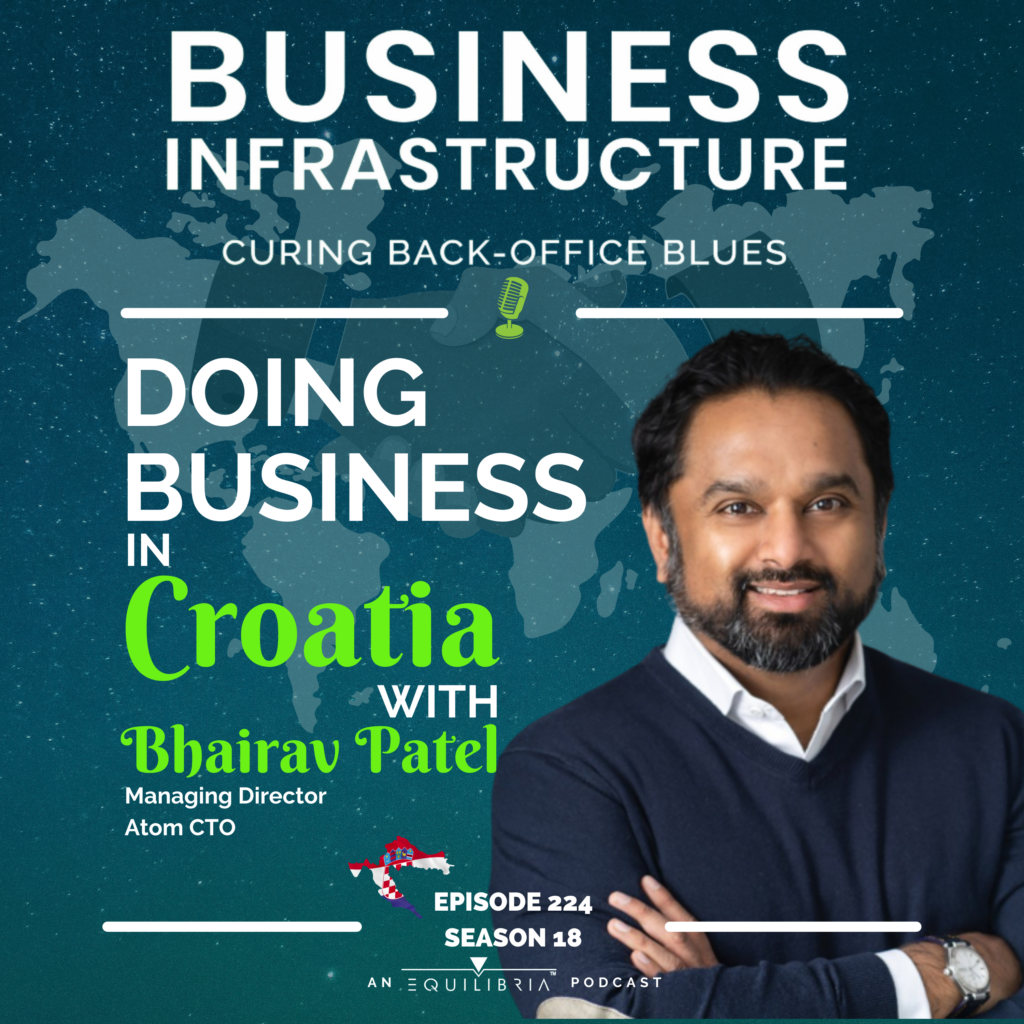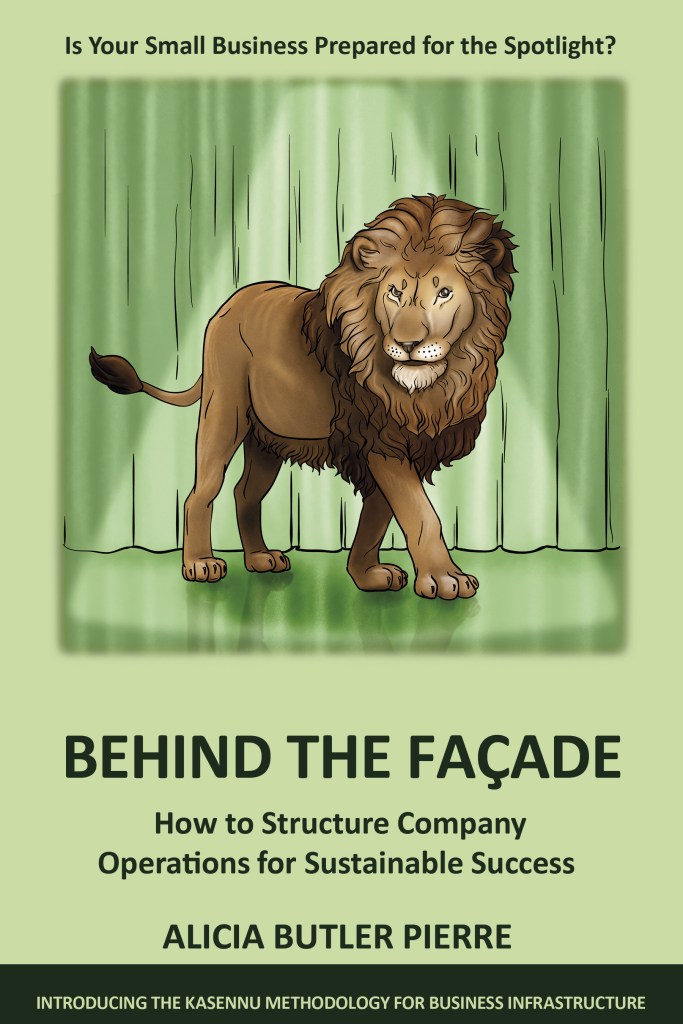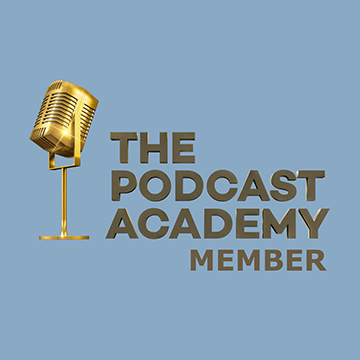Transcript
We’re back on Equilibria Airlines for a quick 90-minute flight from Dublin, Ireland to London, England. While in Ireland, we had a great time meeting with Martina Goss who shared different possibilities for expanding our operations via different Irish business programs.
Now we’re headed to meet Bhairav Patel in London, who we luckily caught as he’s only here for a short while. He currently lives in Croatia.
I’m Alicia Butler Pierre and this is Season 18 of the Business Infrastructure podcast – the show where we share operational tips, tactics, and tools for curing back-office blues. I’ll be honest, I’ve heard how beautiful Croatia is, but I don’t know much about it from a business perspective so I’m excited to learn more and hope that you are too.

This episode is underwritten by Equilibria, Inc. the company behind this podcast where we design scale-ready business infrastructure for fast-growing small businesses.
As the pilot announces our arrival at Heathrow airport in London, England, we’re taking in the size of this airport. It’s big… and busy. As we wait in line to go through customs, we each receive a text message. It’s from Bhairav Patel, the co-founder of Atom CTO. He’s beat us to the punch! He’s a technologist so of course, he has an app that he’s used to track our arrival. We make our way to the Piccadilly line of the “tube” – London’s infamous subway system. We’re headed to meet Bhairav at a café.
This is Episode 224 – Doing Business in Croatia with Bhairav Patel
My name is Bhairav Patel and I’m currently in the UK, but I’m only here for a couple of days. I’m currently living, in a more general sense in Croatia.
And you’ve been in Croatia for a year now, is that right?
Yes, pretty much as soon as COVID ended. We had Brexit at the same time in the UK and I decided that I needed to kind of get out after spending two years at home with my parents. It would make much more sense to, to go exploring again. And so ended up in Croatia because actually it was the easiest place for me to get a, a digital nomad visa.
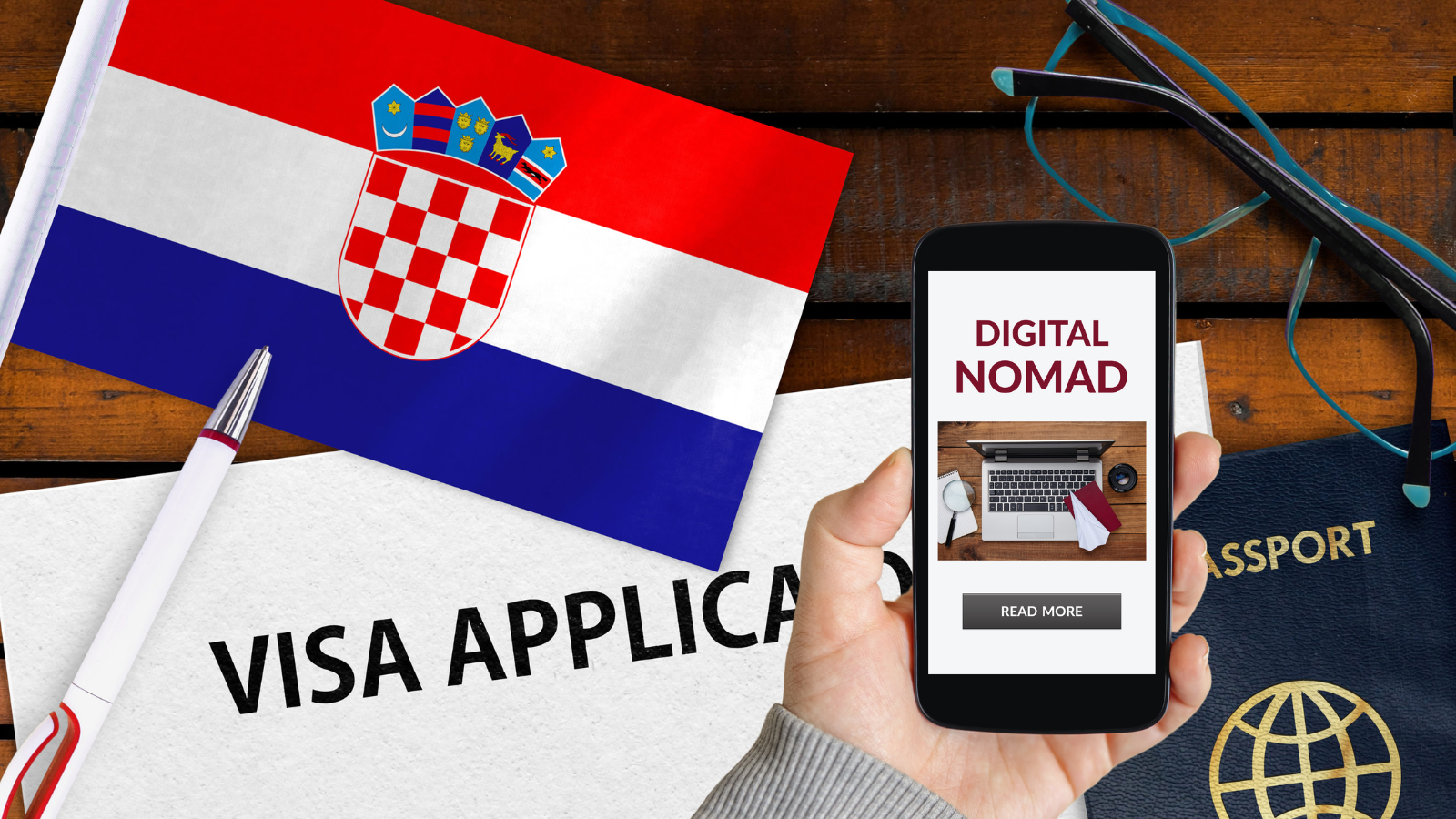
A digital nomad visa. What is that?
Since Brexit, a number of countries have decided that they want to bring in foreigners. What you find is that if you obviously are born in the EU or have an EU passport, you can travel freely. But now since Brexit and the UK are no longer part of the EU, it’s much more difficult for us to be in Europe for any extended period. And a number of the countries in Europe decided that they wanted to entice people like myself. And actually, you know, people like yourself, Americans, third country nationals to come over. And so, countries like Estonia have one, Spain, Iceland, Georgia, Madeira has one, and then obviously, Croatia, and there’s more and more coming along. And, and what they allow you to do is to stay in the country for more than three months, and in certain circumstances, you don’t have to pay tax, which is amazing.
Amazing, indeed. And…intriguing. Hmm…I wondered how people like us living outside of Europe would apply for a digital nomad visa.
Depending on the country, it can be quite simple. So generally, need to prove that you’re not criminal. You have to prove that you’ve got foreign income over a certain amount. I think Croatia was about 2000 euros net. Greece is about two and a half thousand euros. Portugal has something similar as well. So, you just have to prove that you’ve got, the ability to pay for yourself while you’re in that country. And then you need to show the insurance and a place to live, but that’s easy enough to do. You can easily use Airbnb for the first month or two while you’re there and use that as your proof of residence.
You might say that living in other countries is a part of Bhairav’s DNA. Although he was born and raised in England, his parents are originally from India and relocated to England in the ’70s. Growing up, Bhairav’s academic success led to his acceptance at the highly acclaimed London School of Economics and Political Science. Although he pursued a law degree, he got his first taste of business consulting and…living abroad when he worked at PricewaterhouseCoopers (also known as PwC) upon graduating.
So, it was about ’98, ’99. I actually came to the U.S. to train with PwC back in those days. And then my first project was Lithuania. And then 20 years later, I came back, around about 2018 to start up Atom CTO. And that’s why I moved back home and stayed until pretty much a year and a bit ago.
Obviously, a lot happened during those 20 years but before we get into those details, I wanted to peel back the layers on Bhairav’s career.
How did you go from law to being this technocrat?
Yes, that in itself was an interesting journey. So, what happened was I did the law degree and then I did a couple of, small internships at some law firms just to gain some experience, to see how they were. And I realized that I didn’t like lawyers, all working in, in the legal profession, but then I didn’t know what I wanted to do. So, I applied to everything you could have imagined. GlaxoSmithKline, oil companies, BP, Shell, whoever I could, whoever had a position that I thought was interesting, and then I would go to the interviews and then figure out, “Okay, is this thing something I want to do or, or not?”

Bhairav interviewed for positions in so many industries until all that was left was management consulting. The clock was ticking. He needed to work. And that’s when the PwC opportunity came about.
I think the consultancy aspect really fits with my personality, well back then, it did. And it really fit with, with what I wanted to do. And I always was a fan of technology. So, doing technology consulting was, was great. And you got training just to get yourself going so that’s really why I switched.
And making that switch from law to technology would set Bhairav on a worldwide adventure. He worked at PwC for four years before succumbing to what many consultants experience…burnout.
So, I quit became a contractor and started working at Telenor actually in Norway. And funnily enough, I halved my hours in doubled my wage by going there. So, my life, work-life balance came back and, you know, I was just a happier bird. And then from there I ended up moving to another telco in Norway. But then from there my old boss became the CEO of an e-commerce business. And then I kind of decided to take the jump and move to the other side. So rather than being a consultant, I became the I.T. director.
This transition from consulting to leading was a trial-by-fire experience. But Bhairav was ready – his technology training at PwC prepared him for this moment.
We were all very, intelligent people who were quite adaptive and who could speak. And so, what they didn’t need to teach us was really how to talk, but what they did need to teach us was how to write Java code or write C code. And funnily enough, the first project I took used neither of those. So, I had to learn a couple of, other programming languages and you just learn by doing.
You have a very strong team around you. I was quite fortunate in my career path in that I had some very good mentors, and they really pushed me to kind of go into different areas within tech. So, I was not only programmer, but then I became a test team lead and then I became an architect.
And next came Bhairav’s advancement into that I.T. Director role. As they say, to whom much is given, much is expected. This opportunity found him leading larger teams with larger solutions. He also got to see how an entire business is run end to end. By 2013, he answered a calling for a new opportunity.
I left Norway to go and work for a FinTech startup that had raised 12 million back in 2012. And we grew that business and raised overall about 45 million became a global business, but also became part of the Forbes FinTech 50.
Unfortunately, just four years later it all came crashing down by 2017. The reason? Well, it has to do with the very thing we warn about on this show – how too much growth too soon can be catastrophic. Bhairav’s next move was to Bangkok, in Thailand.
I was there to do a job, which is, again, I kind of had a little bit of burnout from that previous business, when I was in Bangkok, I realized I couldn’t be there for too long. I needed to be there just to do this piece of work and, and then come back or either take a holiday or go somewhere else and do something completely different. Around the time I was finishing off the piece of work I needed to do one of my old colleagues from the previous business calls me up and says, look, we’re starting a new venture. We want you to be involved in the technology. And I was quite lucky at that time because all the other guys I’d hired within my team were available. So, most of them were there and available. So, I got together with them, and I said, look, you know, we’ve got this opportunity. We have one client who, who knows us well, I’m sure if we put our minds to it, we could probably get a second client.
And that’s how Atom CTO started. The year was 2017 and by this time, Bhairav is back in England, and this rounds out the 20-year stint he mentioned earlier. Business was booming.
We were doing really well. Our first client was a startup who knew us well, of course, but they didn’t have huge amounts of money. Right. And then there were five of us or six of us who were starting the company at the same time. So, they had to upfront conversations about, you know, how much were you taking home? Who could take what? And I was in a luckier position, let’s say that I could take less or the minimum I needed to in order to help grow the business. But the other thing was that you have to remember, I hadn’t been in the country for 20 years, physically, really.
Although Bhairav had visited his family in England over those 20 years he lived and worked abroad, he didn’t have a strong network there. But he was determined to make this new business work. He co-founded Atom CTO to primarily work with startups and small businesses that don’t have access to good tech advice. This was a gap he noticed in the marketplace.
There are plenty of development houses out there that will build your mobile app or your web app, but there’s not many organizations out there that will help a small business or a startup plan and define their strategy in their roadmap and align that with their business strategy. So, you’ll get companies who will tell you how to build a mobile app, but they won’t really help you understand whether that building, that is actually the right thing for you to do and whether there’s other things that you could do to achieve your goals.
So, we work with, founders primarily. We are very clear that we work with mostly business owners rather than the techies within a company. Because they’re the ones who have the business challenges, right? We sit down with them, to understand, everything that you do with a business what are your processes, who you’re serving, who are your key stakeholders, how are you looking to grow? How are you looking to gain revenue, all of those things. And then we build a tech roadmap and a tech strategy for that.
What Bhairav is describing is in many ways, business infrastructure. Business infrastructure is a system for linking the people, processes, and tools and technologies to grow and scale a business profitably and sustainably. Atom CTO doesn’t analyze technology in isolation. They take a holistic view of a business to understand how technology can support that business not the other way around.
Bhairav may not have had a local network when he returned to England, but he certainly had a large, global network at this stage of his career. And this is what would ultimately lead him to Croatia. Coming up after the break, we’ll learn all about his move there, why he chose Croatia, and how you might consider digitizing your operations to enjoy the flexibility that life as a digital nomad can afford.
Remember that story Bhairav shared about the fintech company that grew too fast too soon only to fail? It’s a cautionary tale of what can happen when your business grows faster than you can keep up with? Do you need to grow your team but aren’t sure where to start let alone who to hire first? And what about processes? Do you have any of them documented so that people know what work to do and how to do it?

If you own a fast-growing small business and want a company that can consistently operate without your daily presence, then the Smooth Operator course is for you. It’s an online introductory course on business infrastructure that can provide you with proven tools, tactics, and techniques to calm the chaos and restore order. Go to SmoothOperator.courses to learn more. That’s SmoothOperator.courses.
We’re back and here to give us a sense of what it’s like to do business in Croatia is Bhairav Patel. Before the break, he shared how his career in technology ultimately led him to start Atom CTO. But how did he make his way to Croatia? Why Croatia? Remember, he had a global network, and he knew how to use it. Here’s Bhairav…
So, I could leverage the network I had from those days, because I kind of work with companies all around the world. And I leveraged that network to be able to kind of service other companies that we came along with. The journey to Croatia was quite interesting because weirdly during COVID, we went from six to five now up to 20 which was against current thinking.
In other words, as other companies were contracting or shutting down altogether, Atom CTO was expanding!
The reason was because we realized that we had an opportunity here to take a lot of the skills we outsource and bring them in house.
And people wanted us to be more in control of their projects than we were. And one of the things that we were doing was obviously building more partnerships with other companies, that would be similar to us, but slightly different. I think one of our strengths is that we’re concentrating on one set of technologies rather than trying to be masters of many different types of technologies.
Funnily enough, over the years when I was in Norway and when I was, in, Ireland working for, the FinTech out there, we were working with a number of Croatian businesses. I’d first gone to Croatia in 2000. And then I was back there in like 2015. And so going back again and seeing everybody and then actually having a space to work and getting plugged into the community fairly quickly was good. And it was good for me to see how actually business is done in Croatia, ’cause it’s a little bit different from the way, it’s done in the UK.
And that is a great segue too. What is it like doing business in Croatia? I have to be honest with you, being here in America, I don’t hear much about Croatia. I’ve always heard that it’s a beautiful country and a nice place to visit, but beyond that, what is it like to actually do business there?

Croatia is beautiful. The Dalmatian coast is fantastic there’s thousand plus islands. So, there’s always something for you. What’s quite interesting is that there’s a number of companies I followed over the years because we did a bit of business with them, and one recently got acquired. Croatia has a great technology, scene. There’s a lot of companies there. They’re a lot of very smart people, some great universities, technical colleges, but the focus for most of them is outside of Croatia.
This is similar to what Martina Goss told us during our visit to Ireland back in Ep. 223. Because of Ireland’s smaller population, many businesses have exporting as a part of their business models. Similarly, Croatia has a smaller population of 4.1 million people. So, it makes sense that Bhairav says many Croatian businesses have an external focus.
A hundred percent of the friends I have who run businesses in Croatia, they have let’s say less than 10% of their client base is Croatia. It’s a tourism-based industry, right? I think there’s a bunch of manufacturing and agriculture. So, everybody in Croatia is really in a tech scene. Most of them are actually, outwards working with, with companies in Europe or the U.S. or globally. It’s a different attitude, that let’s say in the UK where everyone is mostly focused on UK clients, they’re kind of thinking overseas first because they’re not even considering their own market as a place to be able to build and scale. So, it’s a different mindset, right? It’s a different way of thinking.
That’s interesting because I’ve heard similar things about Dublin. Is that a fair comparison to make?
I wouldn’t say so necessarily with Dublin. I think Dublin’s an interesting place. I spent four years of my life there. I think, with Dublin, you already have a lot of the big tech giants, right So if you’re a tech services company, then actually it’s quite easy to find a large enterprise there’s Facebook and Google and LinkedIn and they’re all there. So, you can knock on someone’s door and try and do business there. I think from a small business perspective, like if you’re looking at like the milk producers or the pharmaceuticals, which is a massive industry in, in Ireland, I think they’re the biggest producer of Botox in the world.
So, they are obviously looking at a global, reach because the internal market is too small. If you want to grow and scale, you’re not going to find that within Ireland, but then you have people like Stripe that came out of Ireland, massive companies and they leveraged, you know, what they had around them, which was a bunch of eCommerce and large, tech giants that they could work with early on.
Okay, back to Croatia…why did Bhairav choose to relocate there to run his business?
So that’s an interesting one. I decided to move to Split rather than Zagreb, because I knew a bunch of people in Zagreb and I thought, let me go Split. It’s a bit different and let’s see where the tech scene is there. So, when I got there, I found that the tech scene was quite disparate. They were trying to coalesce around a certain subset of organizations, but they weren’t really always doing things on a regular basis. And luckily, I guess the time when I moved there, there was a place called smart space. that opened up and, and the guy who opened up actually created a really beautiful co-working space. Which is also an event space. And so that became kind of a hub for all the digital nomads in Split.
And there’s a lot that go through Split. So, you find that in Croatia, be, you know, if you go from the Dalmatian Coast, Montenegro, Serbia, there’s a lot of nomads that go through that space because it’s fun, it’s cheap and it’s beautiful, right.
So once Bhairav relocated to Croatia, how exactly did he begin networking?
It kind of goes back to the old school methods, right? So, first thing I did was look at the Facebook groups. Second, Twitter groups or organizations that are on Twitter that’s around, tech in Split, and then actually just going to the hubs, which were a couple of the coworking spaces. So, there’s about three or four coworking spaces where you can just go and rock up, put your laptop down and start talking to people. And the one thing about all nomads is everyone’s curious, everyone’s nosy, right?
Everyone wants to know what else you’re doing, where you’re coming from. But I think that Split, in many senses, is actually easier because it’s a much smaller city. Once you know one person, you pretty much know everybody, whereas Zagreb was a little bit different. If you’re going to Zagreb, Zagreb is a bit like going to London, right? All the tech guys I know, they’re a bit older, they have families. They’re not really involved in that nomad scene, so you don’t necessarily get the same kind of support. The digital nomads do exist in Zagreb, they’re obviously there, but it’s kind of that community’s not as well defined as it is in someone like Split or maybe into Brezarić or, or definitely Belgrade.
Listening to Bhairav you might be a little overwhelmed at the thought of living as a digital nomad let alone networking to meet new people. All you have to do is take the first step. It can be intimidating putting yourself out there. And that’s where a networking process can help.

It’s kind of go and find the things you like doing. And, you know, you’ll eventually meet a couple of people and odds are that those couple of people will know a bunch of other people that you’ll quickly be introduced to. And then you can build your network out. Now on the flip side, trying to do business, it’s a little bit more difficult if you’re thinking about doing it internally within the creation
market. I would say that unless you are a property developer or in the tourism industry, or manufacturing some sort of product for retail, I think it would be a little bit difficult.
Especially if you don’t speak the language, but if you are more tech focused and you’re looking outwards, then it’s the same principles. You do the same things that you would do if you were home. And I think what COVID did was allowed us to have more digital meetings and more digital networking, which means that you don’t have to be in London in order to meet other people from the UK. I think it’s become a lot easier, and I don’t think it’s a, it’s a big barrier if you’re still gonna work for U.S. clients in Croatia. You would just do the same things that you would normally be doing if you were there, but you’re just sitting on a beach and it’s sunny.
Not bad, not bad at all. This is actually how Bhairav and I met. Not on a beach, but through digital networking. My wonderful publicist who’s in the Philippines introduced me to Bhairav who at the time was living in England at the time. I’m in the U.S. and digitizing our respective operations made it possible for us to network without
geographic restrictions. Time zone differences aside, it’s really this simple.
You can absolutely be literally anywhere in the world and your clients would never know unless you told them, right?
A hundred percent. I tend to think about it as the same as if I was moving around the UK. You’re just still in the same country. But if I was in Edinburgh versus London or Bristol, I would still need to have the same set of organization and processes in order for me to do it. The only thing you have to really deal with at time zones and in the U.S., of course, you still have to do time zones unlike the UK. But I think that as long as you have those processes and you’ve got the right delegation, I saw one of your post secs, you’re LinkedIn the other day and unfortunately you were in hospital, but you laid it out quite nicely as to how you could be out of work for, was it a month or was it a week?
It was more like two months.
Two months? Okay. Yeah. But it was two months and you laid out quite nicely, how that you can be out of work for two months without everything falling apart around you.
What Bhairav is talking about is the fact that I had surgery back in April 2022. It was a scary time, but he’s right – my own company’s business infrastructure was put to the test as I spent time recovering. Thankfully we passed that test. Now earlier we mentioned time zones as a potential barrier for conducting business, but language can be another barrier…or is it?
If you’re, if you by the islands and you’re anywhere on the coast from Austria to, to bro younger generation, everybody speaks English. I think in Croatia, you’re quite lucky that way. If you need an electrician or a plumber, then you kind of need to have a little bit of Croatian, right? But generally, most people will speak English or enough for you to be able to handle most situations.
Uh-oh, that’s the sound of our alarm. That means we need to start wrapping up our conversation with Bhairav. But we can’t leave without him telling us more about his podcasts.
We’ve got two podcasts. One is the Atom Ventures podcast. That podcast is primarily about entrepreneur and entrepreneur stories and, people and masterclasses. So, there’s the two things I try to do. One is to try and help people who are thinking about starting a business, give them the tools and the knowledge that they need to figure out what they should be doing before they go get in there. But also, it’s kind of a bit like a therapy session. I like to do the podcast because there’s always someone who’s been through something similar to yourself and you can actually talk through their experiences and how they’ve dealt with it and, how they’ve scaled or grown their businesses.
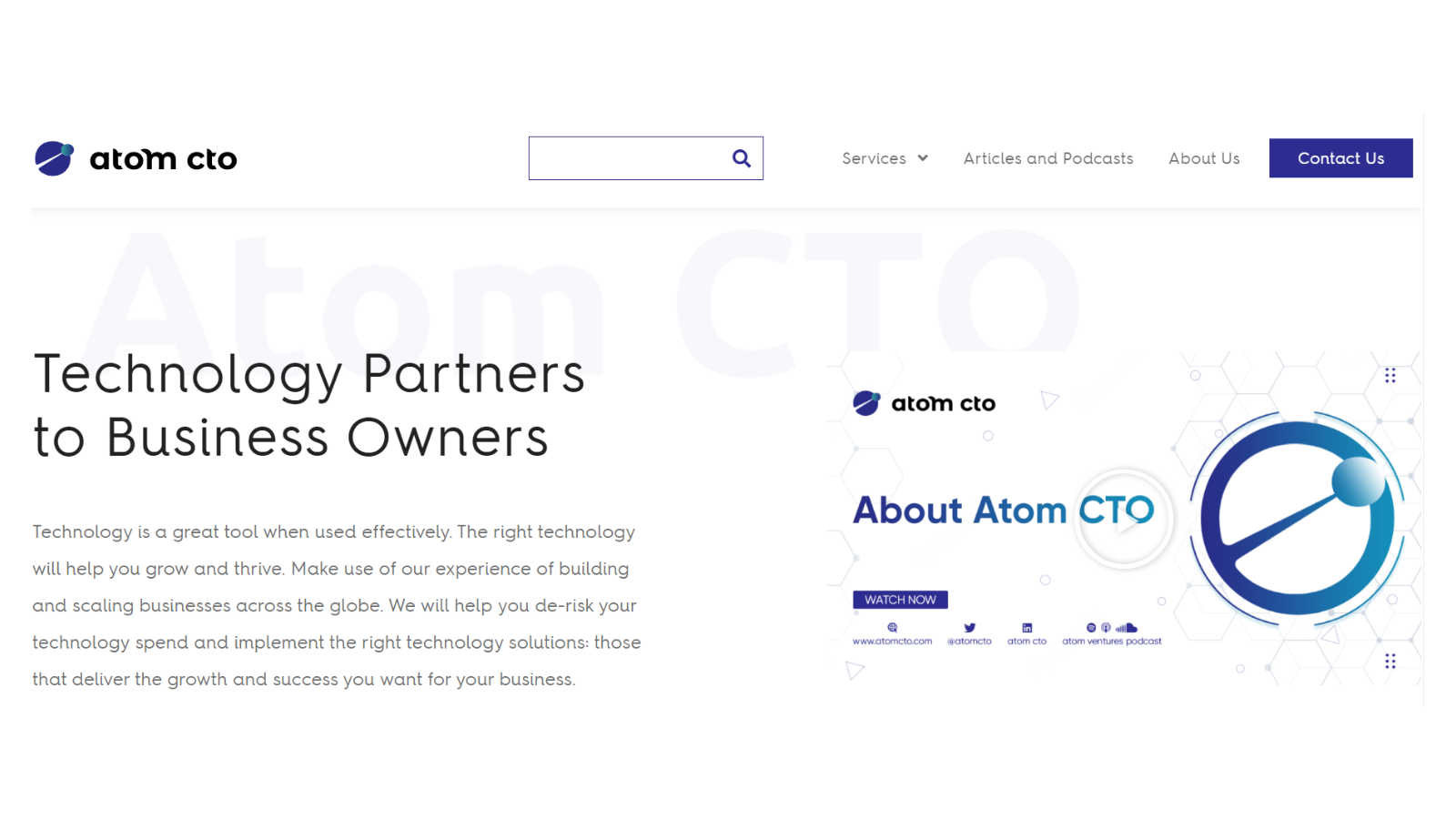
As the name “atom” implies, the Atom Ventures podcast is about breaking things down to their most basic level. Then there’s Bhairav’s other podcast.
I have a co-host on that, Alan Clark, who I met actually, when I started a new business in Scotland. He was one of my business mentors that came through Scottish Enterprise, which is a government organization. As we went through that, we kind of had some great conversations and thought, well, why don’t we make this into a podcast. And that’s called the Real World Entrepreneurship podcast. And that is actually a bit more of a raw podcast where he and I talk about some real challenges you face, as an entrepreneur, from a personal level, really, and how you can deal with them.
Speaking of real challenges that we can face as entrepreneurs, pay close attention to Bhairav’s parting words of advice.
The one thing I’ve found is that every country, there’s something different that you need to search for. I know it sounds a bit hard, but let’s say for when I was in Norway there are certain, websites that, that are specifically Norwegian that you won’t really Google if you in English as such, but they are kind of gateways to, to helping you find things that you want.
Different countries do things very differently. None of the friends I have in Norway use WhatsApp, they all use Messenger, right? Whereas everyone I know in Brazil is on WhatsApp and conducts business and sends money via WhatsApp and all those kinds of things. Croatia similar, there are certain news publications that are great, but again, it’s, it’s kind of hard to Google. So, in many ways, the first thing to do is really just to get on to the Facebook group.
I know it’s a bit old school and a little bit, dated, but it seems to be the best way to find, an introduction into other people within the same community. I haven’t found a better way is if you’ve got a hobby go research that hobby and someone within your group will probably know in your own country, someone will probably know about how that can be done in other countries. So, if you’re a musician, it would be easy to find how to get, you know, into the band scene in someone like Croatia. That would be, that would be a simple thing to do. So, it’s actually leveraging your own network at home to see who do they know in other countries. And you are always surprised at who, you know, in another place.
You never know who knows someone who knows someone, and you just have to really put it out there. Right? It all starts with you. You have to take it upon yourself to actually reach out to people, connect with them and try to form meaningful connections and relationships, you just never know what that could lead to.
No decision in life is final really. I think if you want to try and go to, let’s say someone like Croatia, go there and test it out for a month, but don’t go there in peak season. Like June, July, August when it’s the most expensive and the most crowded go there earlier in the year. Try and get to know the culture a little bit more and see whether you’d like being abroad and whether you like, working abroad. Cause a lot of people can’t right. People can’t adapt, because of whether it’s time zones or not finding the most comfortable place to, to sit to do work. So, there’s no harm in trying, right? If you really like the idea of it, find one or two places that you feel that are interesting for you. And then just go for it.
Bhairav, I feel smarter every time I talk to you or listen to you on one of your podcasts. Thank you so much for your time!
Thanks for having me on. It’s been a pleasure talking to you.
Well, what do you think? Are you ready to give up your worldly possessions and become a digital nomad? Or maybe you like the idea of still having a homebase with the flexibility of being able to live abroad in a country like Croatia for a month or so. Anything is possible, especially if you’re willing to network, delegate, and digitize your back-office operations.
Let’s thank Bhairav for spending time with us! He’s indeed a great connector so I’m sure you have a lot more questions for him, like how he handles exchange rates when pricing his services, among other things. We’ll have links to the resources he shared including how you can connect with him on social media at BusinessInfrastructure.TV.
Gosh, we better hurry before we miss our next flight. Let’s quickly get on the tube in London to head back to Heathrow airport. We’re about to cross the Atlantic Ocean for our next meeting. Where exactly are we going? Stay tuned for the next episode to find out!

Thank you for tuning in! If you enjoyed this episode, then please subscribe and leave a five-star rating and review.
Starting, growing and scaling a business is no small feat but taking heed to Bhairav Patel’s sage advice can save you from making costly mistakes while working from the beach if you choose to. Remember, we’re all here for you so stay focused and be encouraged. This entrepreneurial journey is a marathon and not a sprint.
This podcast was written, produced, and narrated by me, Alicia Butler Pierre. Audio editing by Olanrewaju Adeyemo. Original score and sound design by Sabor! Music Enterprises.
This is the Business Infrastructure – Curing Back-Office Blues podcast.


